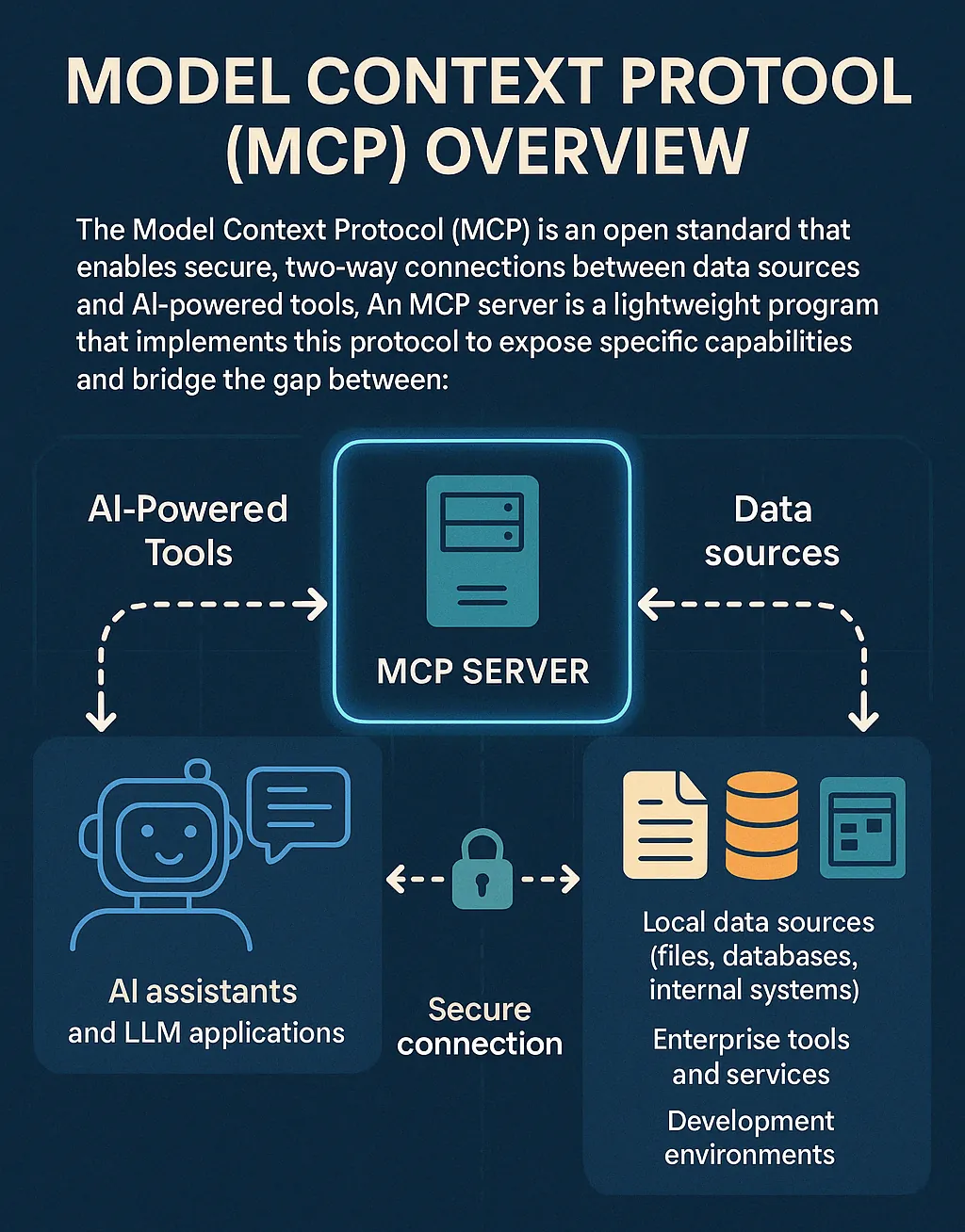Model Context Protocol (MCP)
An open standard for connecting AI systems with data sources, tools, and services
Core Concepts
Model Context Protocol (MCP) Overview
The Model Context Protocol (MCP) is an open standard that enables connections between data sources and AI-powered tools. By providing a unified, standardized interface, MCP allows AI models to seamlessly access, interact with, and act upon information, eliminating the need for custom integrations for each data source. This enables developers to build more powerful, context-aware AI applications that can securely leverage enterprise data, tools, and workflows.

Architecture Overview
MCP utilizes a client-server architecture to securely connect AI tools with data sources. Learn more about implementation details and component interactions.
Clients and Servers
MCP operates through a network of clients and servers, each playing a crucial role in the ecosystem:
- Clients: These are typically AI-powered applications or tools that initiate requests and consume data. They leverage the MCP protocol to communicate with servers.
- Servers: MCP servers provide the necessary interfaces and capabilities to handle requests from clients. They manage data access, processing, and integration with various data sources.
Examples of MCP in Action
Discover practical MCP implementations in the following sections:
Data Management
-
PostgreSQL Query Engine Natural language to SQL conversion in PostgreSQL MCP Adapter
-
Google Drive Integration Secure document management and file operations through Google Drive MCP Server
-
MongoDB Context Storage NoSQL document handling via MongoDB MCP Integration
Development Tools
-
GitHub/Git Access Repository management and CI/CD automation in GitHub MCP Connector
-
Ansible Automation Platform Infrastructure automation and configuration management through Ansible MCP Integration
-
Sentry Error tracking and monitoring platform for application stability via Sentry MCP Integration
-
Swagger API documentation and testing platform integration via Swagger MCP Integration
These implementations showcase MCP's versatility in handling development tools and data management scenarios. Each section provides detailed documentation with implementation guides and API references for seamless integration.
Related Articles
Development Tools and DevOps MCP Servers
The Development Tools & DevOps category provides integration with essential development tools, version control systems, and DevOps platforms to streamline your development workflow and improve productivity.
Memory Systems in AI/ML
An in-depth exploration of memory systems in artificial intelligence and machine learning, covering different types of memory architectures, attention mechanisms, and memory networks. Learn about working memory, long-term memory, and their applications in modern AI systems.
Screen Shot One MCP Servers
Screen Shot One MCP Servers